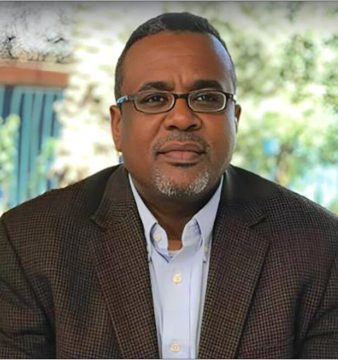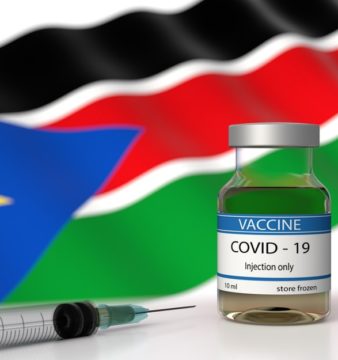Akram Altoum In The Spotlight

In September 2019, Sudan began to form its first government since the overthrow of the longstanding former Sudanese President Omar Al Bashir and his regime. As Prime Minister Abdallah Hamdok addressed the nation in a press conference he stated that ‘a new stage in Sudan’s history starts today’, before naming his cabinet of newly appointed ministers. One of the names would belong to Akram Ali Altoum, who was selected to serve as minister of health.
However, owing to 30 years of gross negligence, Altoum inherited a thoroughly debilitated healthcare system from the previous regime. Riddled with drawbacks ranging from low-quality care to outright managerial corruption, there was no doubt that his task of reviving it was going to be a challenging one; however, in the past months, it has only become increasingly so, following a major outbreak of COVID-19. As the country found itself in the throes of a deep public health crisis, Altoum was thrust into the limelight, flanked by both fierce support and adamant opposition. Recently, rumours of his termination stirred up a political frenzy as he once again found himself at the centre of controversy. In the midst of all the turmoil, it seems it is high time to become properly acquainted with our minister of health.
Altoum was born in 1961 in his native Omdourman to parents Ali Altoum and Haga Kashif Badri, both of whom were prominent political figures in their own right. His father, Ali Altoum, served as minister of agriculture in the late 1970s whilst his mother, Haga Kashif Badri, was a pioneer of the Sudanese feminist movement as well as president and minister of the Social Welfare Council. Born into an educated and influential family, it was only expected that he too would someday become a high achiever, however, early life proved not to be so easy. Due to Haga Kashif’s expulsion from the civil service on multiple occasions because of her political leanings, the young family were pressured to leave Sudan for a number of years, first to Ethiopia before later relocating to Italy.
Eventually, the family returned to Sudan where Altoum completed his secondary education. He later went on to attend the University of Khartoum, enrolling in the Faculty of Medicine. He received his Bachelor of Medicine, Bachelor of Surgery (MBBS) in 1985, graduating with impressive merit grades across the board. Soon after, he began his medical internship, where he trained in both Khartoum and Eastern Gezira district.
In 1989, the young doctor joined the United Nations Development Program (UNDP) as a national programme officer of the organisation’s emergency unit, marking the beginning of what would become a very distinguished career.
Shifting his vision away from clinical medicine and more toward public health, in 1992 Altoum applied for a scholarship with the Fulbright Program, an international educational exchange programme sponsored by the US government. Though competition was intense, he managed to shine through, securing a place at John Hopkins Bloomberg School of Public Health. His time at John Hopkins did not end after attaining his master’s degree, as he went on to join the school as staff, taking on the role of graduate teaching assistant.
Starting a new chapter in his career, Altoum moved to Tblisi, Georgia in 1993. In his capacity as country director for Save the Children Federation, he partook in the effort to mitigate the effects of the Georgian civil war and particularly to tend to the refugees it created. Following this, he took on a series of short term international advisory roles in several countries including Georgia, Kazakhstan, Uganda, Tanzania and Armenia in which he managed health policy reform.
By 1999, he had garnered considerable experience in refugee and migrant health, thus leading to his appointment in the International Organisation for Migration as chief medical officer and migration health programme development officer. Holding the position for five years, he contributed to policies and programmes which addressed labour migration, HIV/AIDS, counter-trafficking, health worker migration, immigrant and refugee health care integration, migrant mothers and children, as well as reproductive health services for trafficked women and migrants affected by conflict.
Upon his departure from IOM, Altoum went on to become an official at the World Health Organisation, first acting as HIV/AIDS Program Manager and later as TB and Malaria Cluster Coordinator, an effort for which he would receive the WHO Regional Director’s Award for Outstanding Manager in the African region in 2008.
HIV/AIDS came to be one of his apparent points of focus, made evident by the fact that he later on became a senior HIV/Hepatitis consultant for the WHO, a position he still retains, and one reserved for those with estimable knowledge and experience in the field. From his office in Cairo, he provided guidance, policy and strategic advice to the 22 Member States of the WHO’s eastern Mediterranean region (to which Sudan belongs).
As of July 2012, the WHO appointed Altoum its representative and head of mission in Jordan. During this time, he worked on the humanitarian crisis caused by the war in Syria, as well as developing initiatives to control communicable & non-communicable disease and strengthen the country’s healthcare system.
For a period of three years spanning from 2015 to 2018, he was retained as a global health adviser for the Middle East (Egypt and Jordan), Asia (Afghanistan) and Africa (Sierra Leone) by a number of regional and national institutions, owing to his substantial capabilities in the fields of global and public health.
As of 18 May 2020, Altoum, described as ‘a man of outstanding professional and personal credentials’ by his colleagues, was elected as one of five vice presidents of the 73rd World Health Assembly, the decision-making body of the WHO.
However, despite having over 30 years of experience under his belt in renowned institutions across the globe, Altoum’s most difficult job yet was arguably that of federal minister of health. The challenges he currently faces are unprecedented, even for a seasoned public health expert. The social, economic and infrastructural landscape of Sudan provided fertile soil for an infectious disease such as COVID-19 to spread through the population unchecked. Thus far, the minister has had to tackle proposals of his termination from the Sovereign Council, abuse of doctors and threats of strikes from within their ranks as well as non-compliance with lockdown regulations from a considerable portion of the nation. With a huge responsibility to burden, Altoum described the country as being ‘behind a virus that is running ahead of us’, referring to the country’s ill-preparedness to deal with the pandemic. It seems that though he is right – the time for prevention has well passed – it is time for all factions of society to come together in a collective effort to ensure that the country come out of this crisis with the minimal damage possible.

Khansa Al-Bashier is a young Sudanese writer with an interest in all things literature, history and religion. When not writing, she can be found pursuing her education as a medical student. Find her on Twitter at @khansaalbashier.
Sources: LinkedIn, Al Jazeera, BBC and Wikipedia




